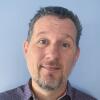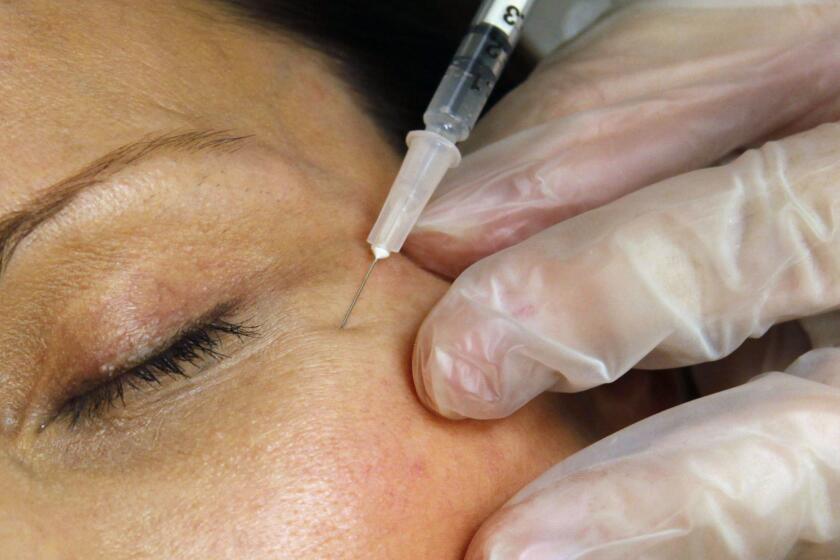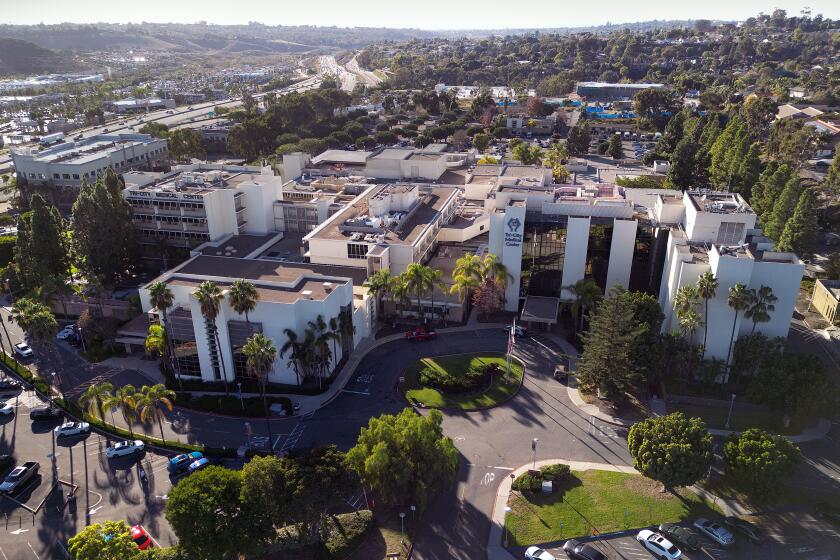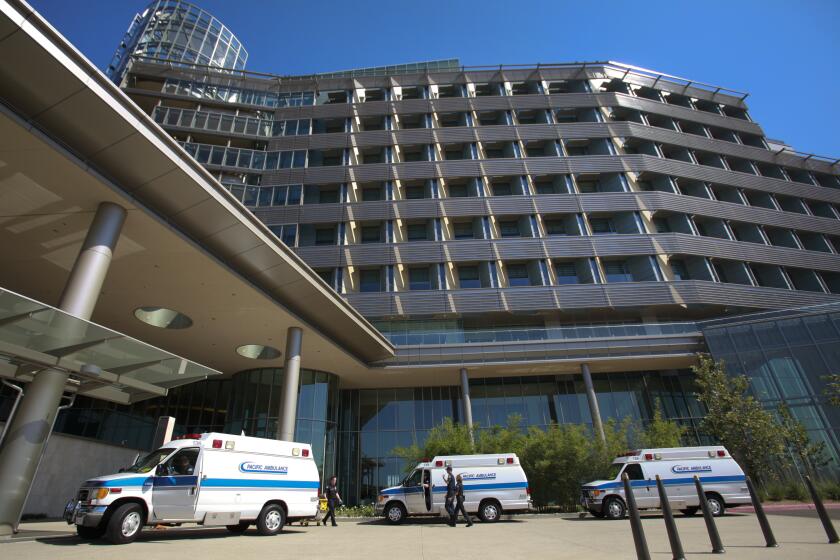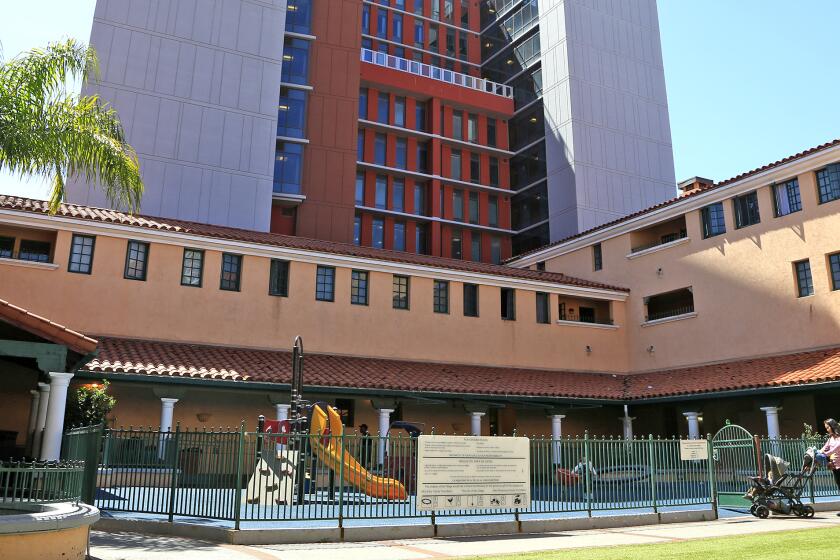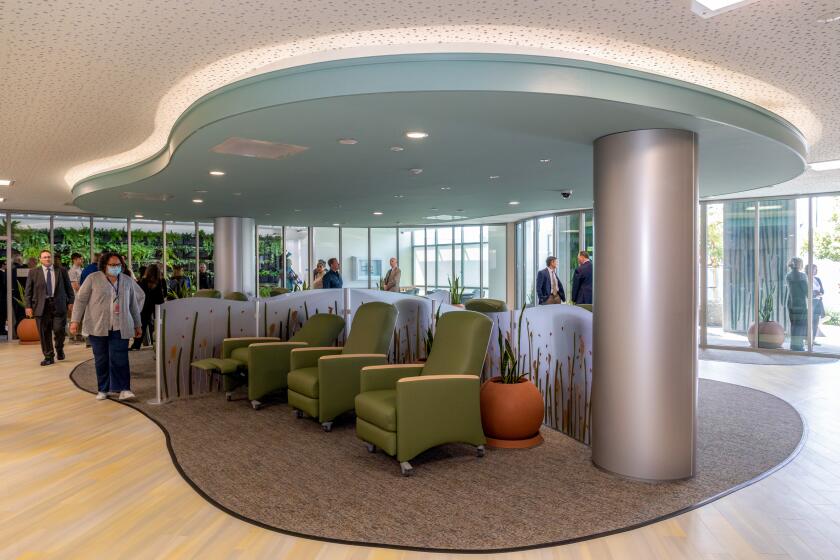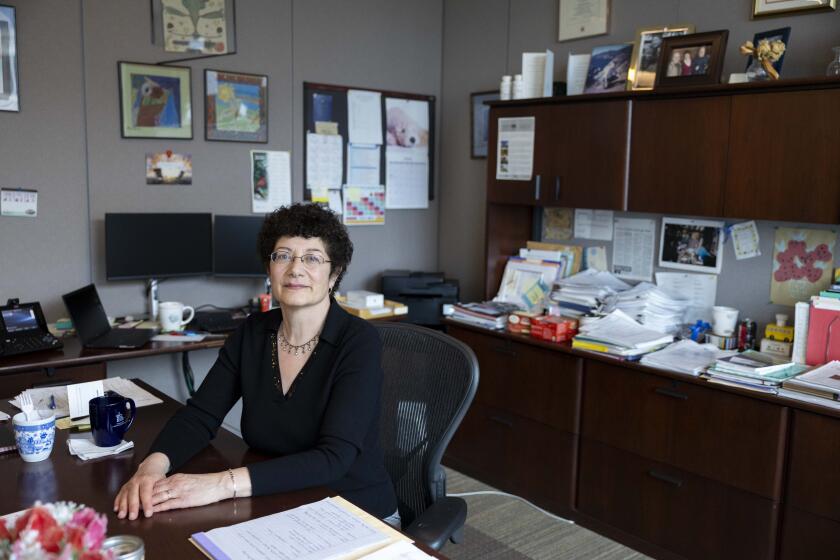New Rady genomic CEO out to make history
Dr. Stephen Kingsmore is a national leader in high-speed DNA sequencing
Already widely known for increasing the speed of genetic testing for children, Dr. Stephen Kingsmore arrives in San Diego looking to make medical history.
Just hired to head up the new genomics institute at Rady Children’s Hospital, Kingsmore said the chance to make the facility the first in the world to fold genetic testing into its everyday standard of care was too enticing to pass up.
Today, patients generally have access to whole-genome sequencing only if they are enrolled in a research project or clinical trial that pays for the expensive diagnostic work.
However, with the help of a $120 million donation from La Jolla philanthropists Ernest and Evelyn Rady, Kingsmore said he believes the new institute will be able to change that reality.
“You’ve got to have the right institution, the right set of doctors, a lot of money and the right sort of societal fabric. San Diego, I believe, is the only place in the world that has this magical constellation to pull it off,” he said.
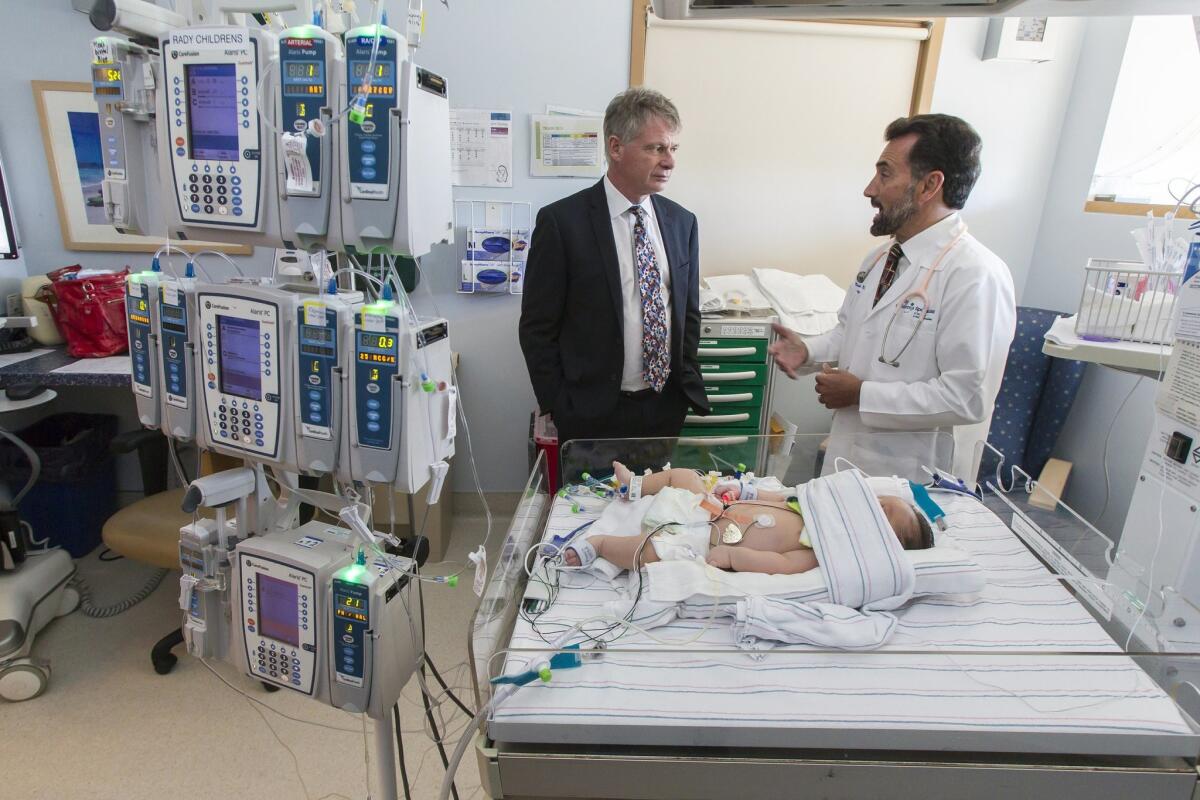
The plan is an ambitious one, said Dr. Robert Green, director of the Genomes to People Research Program at Harvard University. So far, no one has managed to incorporate genetic sequencing into the regular standard of care.
But, he added, Kingsmore’s reputation and expertise give him a solid shot.
“I think he’s definitely a leading researcher in this space. He is a person with great vision and accomplishment already. He’s bold, and he’s willing to see things differently,” Green said.
Kingsmore’s plan is to begin somewhat small by offering the sequencing to many of the patients admitted to Rady’s neonatal intensive care unit who have no clear diagnosis.
He said in the beginning, much the testing will be conducted under the research protocols approved as part of a $6 million grant he received from the National Institutes of Health.
“We will then take that data to payers (insurance companies) and work to convince them that they should reimburse this. But in the meantime, we will need philanthropic support to cover our costs,” Kingsmore said.
Stephen Kingsmore
- Age: 55
- Position: president and chief executive of the Rady Pediatric Genomics and Systems Medicine Institute
- Family: married to Fiona Kingsmore for 27 years; three children
- Education: doctor of science, Queens University in Belfast, Ireland; fellow of the Royal College of Pathologists, London; internship, residency and fellowship in internal medicine, pediatrics, genetics and rheumatology at Duke University
- Previous positions: executive director of medical panomics and founding director of the Center for Pediatric Genomic Medicine at Children’s Mercy Hospital in Kansas City; chief scientific officer, president and chief executive, National Center for Genome Resources in Santa Fe, N.M.; chief operating officer, Molecular Staging Inc., New Haven, Conn.
The strategy is to branch out from Rady Children’s Hospital relatively quickly.
“We’re going to start in the Rady NICU (neonatal intensive care unit), but then we’ll be putting it into ... other Level 3 NICUs. Then we move to the pediatric intensive care units and then to outpatient clinics,” Kingsmore said.
He said the genetic testing service could launch in 60 to 90 days and could eventually be given to 2,500 children per year in San Diego, Imperial, Orange and Riverside counties.
“It’s going to take a decade. But we believe there are children who don’t need to suffer, and we’re going to fix that one child at a time,” Kingsmore said.
It is this sweeping vision that made Kingsmore rise above the 70 other candidates interviewed for the position, said Dr. Donald Kearns, chief executive of Rady Children’s Hospital.
“He arrived with a vision. One of the most telling things about Stephen was, when I called to offer him the job, he said: ‘I need to come out and meet with your doctors to make sure they have an appetite to change the world,’” Kearns said.
While in town last week, Kingsmore had breakfast with Ernest Rady at the La Jolla Country Club. In an email afterward, the businessman turned philanthropist expressed his support for the genetics expert.
“I am truly excited, honored and enthusiastic about him and his mission and what it can mean for children’s health,” Rady said.
Fifty hours
Kingsmore intends to bring to Rady’s a process he prototyped in Kansas City, but implement it on a much larger scale.
Working with a team at Children’s Mercy Hospital, the geneticist developed a protocol and software that enable a child’s whole genome to be sequenced and analyzed for specific markers of disease within 50 hours. That’s much faster than the typical lag time for most whole-genome sequencing projects.
For some childhood diseases, especially those that afflict newborns, diagnostic speed is very important. Children can die while doctors perform test after test, trying to determine what is causing severe illness such as liver failure.
With rapid sequencing of a whole genome and use of the software developed by Kingsmore and his team, doctors can more quickly zoom in on previously identified areas of genetic mutations. Many diseases are linked to hundreds, or even thousands, of individual mutations, and selecting the right treatment can come down to knowing which specific anomaly is causing a patient’s symptoms.
“Each test that a physician orders, he has to wait for the result before he orders another one. The beautiful thing about the genome is, we can take on every genetic disease in one test. All 8,000 of them are under the microscope simultaneously,” Kingsmore said.
Illumina connection
The 50-hour technique required more than simply building effective software. Kingsmore had to work with San Diego-based Illumina, the world’s leading maker of genetic sequencing machines, to create one-off “STAT” runs on the company’s equipment for pediatric patients.
Normally, health providers and scientific institutes process large batches of samples from many patients at the same time. While this arrangement delivers better economies of scale, it also increases the wait time for a given individual to receive results.
Each “STAT” run currently costs $20,000, including sequencing for both of a child’s parents. Testing all three people, rather than just the pediatric patient, allows doctors to determine if the child has any mutations not present in the parents.
The process made big news when it was announced in 2012, appearing on the front page of the New York Times and being named one of the top 10 medical innovations of the year by Time magazine.
Kingsman also used the technology to test a hair sample from Elvis Presley, spotting a mutation that causes hypertrophic cardiomyopathy, a potentially fatal thickening and weakening of the heart muscle.
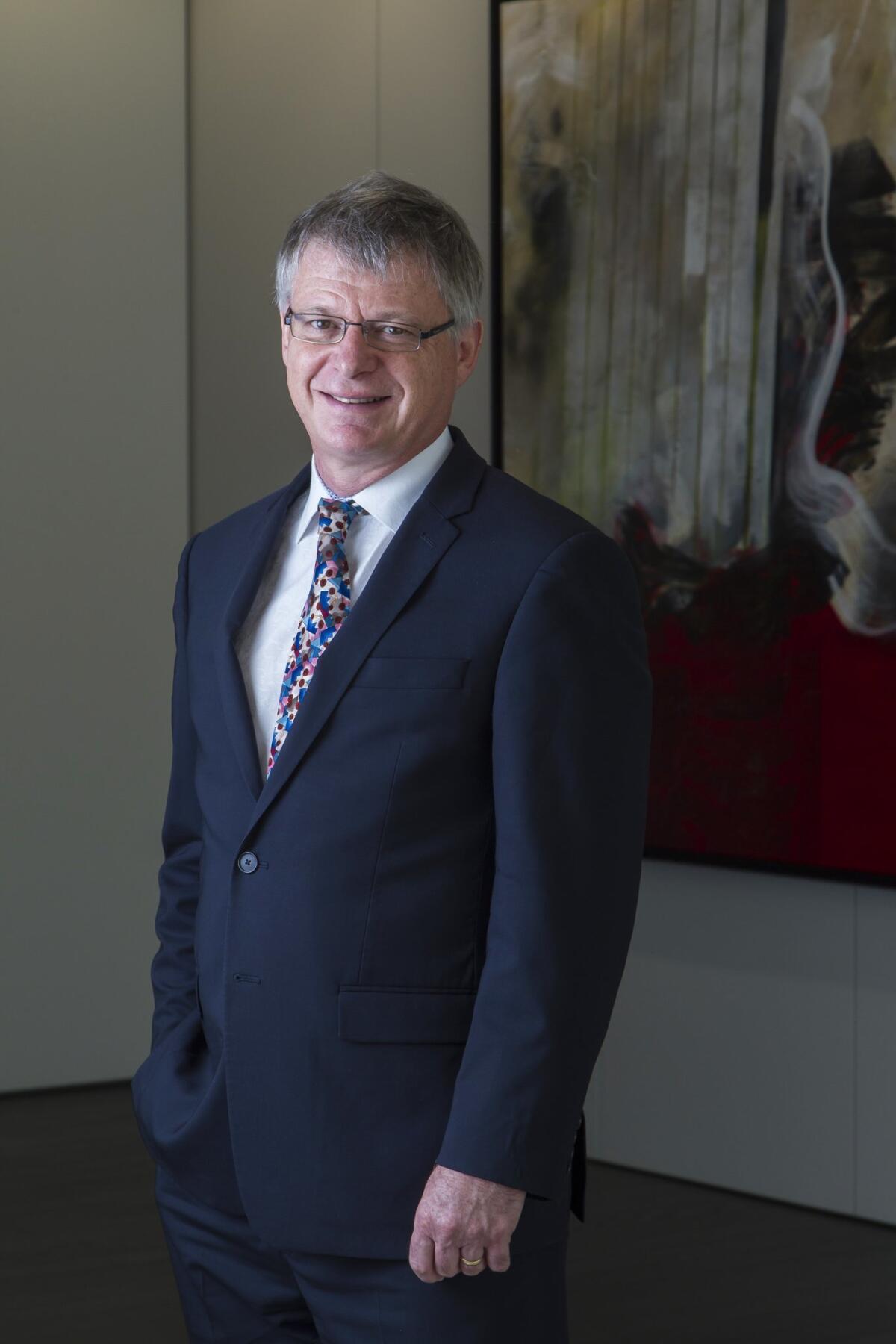
The system has been refined since it was first released, and Kingsmore said new advancements will soon be made public.
Meanwhile, Illumina has announced that one of its sequencers, the HiSeq X Ten, has significantly brought down the cost of genomic testing. The machine can sequence a human genome for only $1,000 when operating at a high-volume capacity.
That drop in price could eventually help pay for more sequencing for kids in San Diego and surrounding regions. Rady Children’s Hospital estimates that more than 24,000 patients in this county alone could benefit from whole-genome analysis.
Kingsmore said Illumina’s latest system was designed for massive “throughput” rather than the ultra-quick turnaround, which is required for his “STAT” method. He said his institute will reach out to Illumina to discuss ways the HiSeq X Ten might be able to take on smaller and quicker projects.
Over the years, he has developed close contacts at Illumina including Dawn Barry, the company’s vice president of market development.
She said Friday that she was delighted to see Kingsmore come to San Diego, and added that the company would definitely continue to collaborate with him.
“We’re very eager to have Dr. Kingsmore in our backyard, and we are relentless in the pursuit of improving the cost and the speed of genomics,” Barry said.
Kingsmore’s first day on the job is scheduled to be Sept. 28.
Get Essential San Diego, weekday mornings
Get top headlines from the Union-Tribune in your inbox weekday mornings, including top news, local, sports, business, entertainment and opinion.
You may occasionally receive promotional content from the San Diego Union-Tribune.
